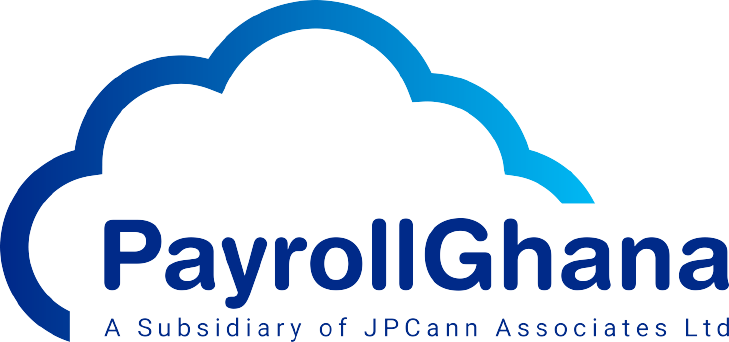Overview
Payroll management is a crucial function for any organization, as it involves paying employees their salaries and benefits, complying with tax and social security regulations, and ensuring accurate accounting and reporting. However, payroll management can also be a complex and challenging task, especially in a country like Ghana, where there are various laws and policies that affect payroll processing.
In this Thought Leadership, I will share some best practices and tips for HR and finance teams to effectively manage payroll in Ghana, based on my research and knowledge of the local context. I will also provide some examples of tools and resources that can help simplify and streamline payroll management.
Understand The Legal and Regulatory Framework
One of the first steps to effectively manage payroll in Ghana is to understand the legal and regulatory framework that governs payroll processing. This includes the following aspects:
Income Tax
Employees in Ghana are subject to pay-as-you-earn (PAYE) tax, which is deducted from their gross salary by their employers and remitted to the Ghana Revenue Authority (GRA) on a monthly basis. The PAYE tax rates range from 0% to 35%, depending on the employee’s income bracket¹. Employers are also required to file annual returns of income tax withheld from their employees by April 30th of the following year².
Social Security
Employees in Ghana are required to contribute 5.5% of their basic salary to the Social Security and National Insurance Trust (SSNIT), which is the statutory pension scheme in Ghana. Employers are also required to contribute 13% of the employee’s basic salary to SSNIT, making a total contribution of 18.5%. Out of this amount, 13.5% goes to the first tier, which is managed by SSNIT, and 5% goes to the second tier, which is managed by a private custodian³. Employers are also required to file monthly returns of social security contributions to SSNIT by the 14th day of the following month⁴.
Minimum wage
The minimum wage in Ghana is set by the National Tripartite Committee (NTC), which comprises representatives from the government, employers, and workers. The current minimum wage in Ghana is GHS 14.88 per day, which was effective from June 4, 2020. Employers are expected to pay their employees at least the minimum wage or higher, depending on their qualifications and experience.
Labour laws
The labour laws in Ghana regulate various aspects of employment relations, such as contracts, termination, redundancy, leave, overtime, maternity, sick pay, etc. The main legislation that governs labour matters in Ghana is the Labour Act, 2003 (Act 651. Employers are advised to familiarize themselves with the labour laws and ensure compliance with them.
Automate Payroll Processing
Another step to effectively manage payroll in Ghana is to automate payroll processing using software or online platforms that can handle payroll calculations, deductions, payments, and reporting. This can help save time, reduce errors, improve accuracy, and enhance efficiency. Some examples of payroll software or platforms that are available in Ghana are:
PayrollGhana: PayrollGhana is a cloud-based payroll and human capital management solution that offers features such as automated payslips emailing; automated calculations of Basic pay with allowances and benefits-in-kind; compliance with pensions and GRA tax requirements, social security compliance, leave management, attendance, employee self-service, etc.
Sage Business Cloud Payroll: Sage Business Cloud Payroll is an online payroll solution that offers features such as payroll calculations, tax compliance, social security compliance, payslip generation, bank payments, etc.
PaySwitch: PaySwitch is a payment platform that offers features such as payroll processing, bulk payments, mobile money integration, bank integration, etc.
Collaborate with External Experts
A third step to effectively manage payroll in Ghana is to collaborate with external experts who can provide professional advice and guidance on payroll matters. This can help ensure compliance with the legal and regulatory framework, avoid penalties and fines, and resolve any issues or disputes that may arise.
Some examples of external experts who can assist with payroll management in Ghana are:
Accountants: Accountants can help with payroll accounting, tax filing, auditing, reporting, etc. They can also advise on tax planning and optimization strategies.
Lawyers: Lawyers can help with labour law compliance, contract drafting and review, dispute resolution, litigation, etc. They can also advise on labour rights and obligations.
Consultants: Consultants can help with payroll strategy, design, implementation, optimization, etc. They can also advise on best practices and benchmarks.
You can contact JPCann Associates Limited if you are interested in using external experts in compensation management, payroll management, retirement planning and tax planning.
Conclusion
Payroll management is an essential function for any organization that employs people in Ghana. However, it can also be a complex and challenging task, due to the various laws and policies that affect payroll processing. Therefore, HR and finance teams need to adopt some best practices and tips to effectively manage payroll in Ghana, such as:
– Understand the legal and regulatory framework
– Automate payroll processing
– Collaborate with external experts
By following these steps, HR and finance teams can ensure that they pay their employees accurately and timely, comply with the tax and social security regulations, and avoid any legal or financial risks. This can also help improve employee satisfaction, retention, and productivity.
References and Source:
- Business Tax Exemptions – GRA. https://gra.gov.gh/domestic-tax/tax-types/tax-exemptions-for-businesses/.
- Payroll Management – Controller & Accountant-General’s Department. https://www.cagd.gov.gh/divisions/payroll-management/.
- The New Pension Scheme – Categories – SSNIT. https://www.ssnit.org.gh/faq/the-new-pension-scheme/.
- Act 766 National Pensions Act, 2008 – Social Security and National …. https://www.ssnit.org.gh/wp-content/uploads/2015/12/Law-Pension-ACT-766.pdf.
